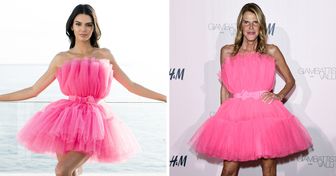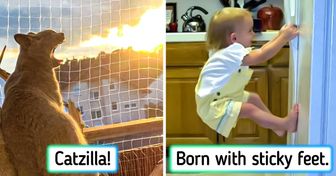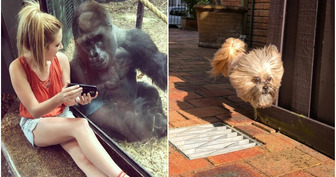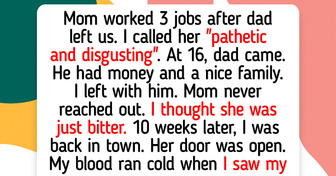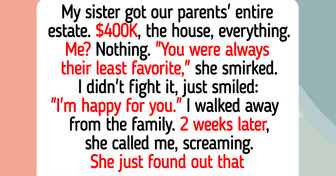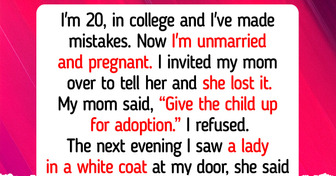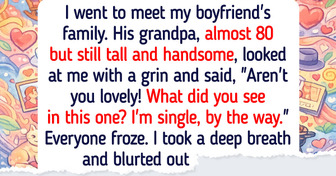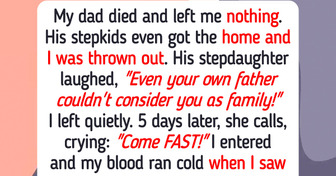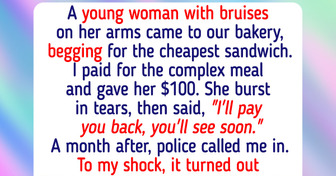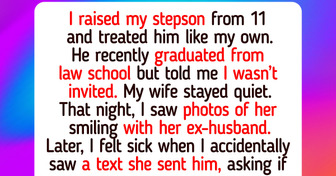11 Narcissistic Traits of Mothers Who Don’t Even Know They’re Ruining Their Kids’ Lives
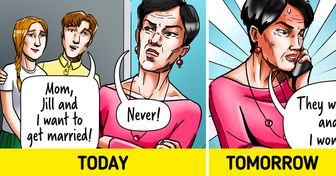

We all have our difficulties growing up, but with a positive mindset and hard work, we can transform these into our greatest strengths. No one knows this better than Hollywood actress and The Devil Wears Prada star, Emily Blunt. The British actress had a stutter when she was a child, which was so bad that she couldn’t even say her own name. But she was able to overcome this and has become one of the most successful actors in the world.
Stuttering is hereditary, and many people in Emily Blunt’s family before her had this issue. Her stutter started when she was 6 or 7 years old, then it got worse as she got older.
While she felt it was only part of who she was, others used it to define her, and she found that really tough. She struggled to speak in class and even found it difficult to pronounce her own name. She explained, “It feels like you’ve got this imposter living in your body.”
She found that she could speak more smoothly if she didn’t sound like herself, so she used to do a lot of funny voices and accents in school. And then, when she was 12, her teacher asked her to be in the class play and even suggested she do it in a different accent to help her. She did just that and managed to speak fluently.
She began to discover that the more she lost herself in a character, the less self-conscious she became, and her stutter diminished. She found the experience “liberating,” and it fostered her love of acting and helped her discover her voice.
That play was the beginning of her realizing that she could handle her stutter and maybe “grow past this.” And then she was discovered while doing a play, and she started auditioning for acting jobs. Since then, she has fallen in love with it even more.
Her stutter can still flare up, like if she is tired, filming a stressful scene, or when she was pregnant. But she doesn’t even consider her stutter when it comes to choosing her roles. When acting, you access a different part of your brain than when speaking as yourself. Blunt finds that removing herself from the situation and empathizing with the character frees her up and allows her not to stutter in her work.
Her husband, John Krasinski, has stated what a powerful actor and person he thinks his wife is. “The air changes in the room when she starts doing what she does,” he said. “It’s so honest and so pure and so powerful. It’s like a superpower.”
As a child with a speech impediment, Blunt was less inclined to speak, so she became a very good listener and an observant child. She absorbed the world in a different way than most people. She credits her stutter with making her an empathetic person. She believes that what she went through helped her establish a sense of kindness, both toward herself and others.
She has also spoken about how having the support of her husband has helped her on her journey: “Meeting John really changed my life... When I feel the support that I have from him, I feel invincible. There’s someone behind you on your good days and someone in front of you on your bad days,” said Blunt.
Emily now has 2 daughters with her husband John Krasinski, Hazel and Violet. Their motto at home is “Be brave, be kind.” Because of her challenges, she teaches her kids that making mistakes, or having difficulties that cause you to make mistakes, is a good thing because it’s how you learn and grow. And she always encourages empathy in her kids, teaching them to embrace people’s differences.
Blunt believes that stuttering is a misunderstood condition, and many children who struggle can be teased for it. She explained, “You’ve got to fall in love with the fact that you’ve got a stutter to accept it. But it’s not all of you.”
She wants people to understand that it isn’t because they are nervous, it’s a genetic condition, and to empower people with a positive outlook — it isn’t that they stutter badly, but rather, they should think of it as “I’m a brilliant stutterer.” She calls her work to help the stuttering community her “greatest pleasure” because of her personal experience.
What was your biggest challenge as a kid? And how did it impact you as a person? What advice from your childhood would you pass down to your kids?

